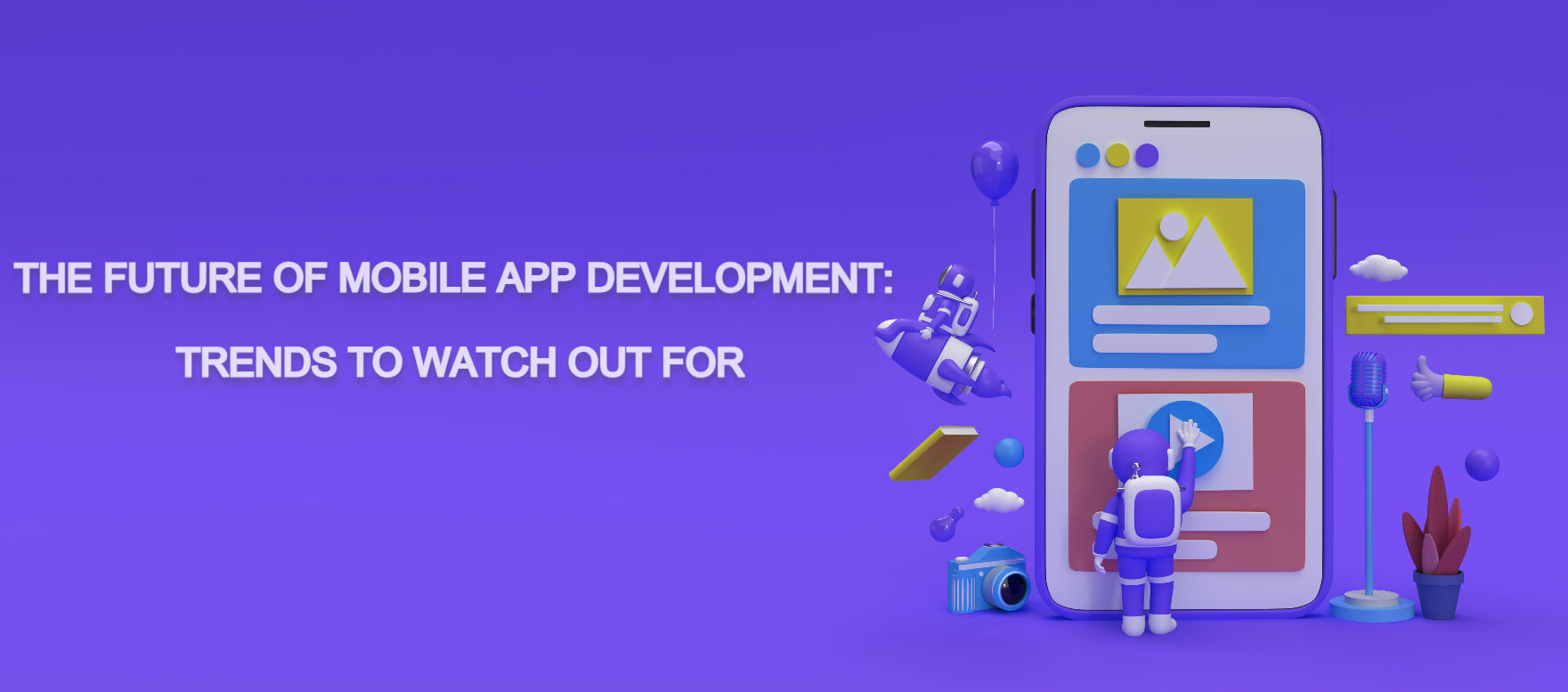The future of Mobile apps has already revolutionized the way people interact with technology. As mobile app development continues to evolve, there are certain trends that we should be aware of. These include the use of AI and machine learning to create more personalized experiences, the development of cross-platform apps, and increased security measures for protecting user data. Additionally, developers will need to focus on creating apps that are accessible to all users regardless of their device type or platform. With these trends in mind, it is clear that mobile app development is only going to get more exciting in the future.
In this blog post, we will explore the most significant trends that developers should watch out for in the coming years. These trends will pave the way for more innovative, personalized, and immersive mobile experiences.
1. 5G Technology: A New Era of Connectivity
The arrival of 5G technology will revolutionize the future of mobile app development. With lightning-fast download speeds, lower latency, and increased network capacity, 5G will enable developers to create more advanced apps with real-time features like augmented reality (AR), virtual reality (VR), and live streaming. Users can expect faster, more responsive apps that leverage the full potential of 5G connectivity.

2. AI and ML: Powering Intelligent Apps
Artificial Intelligence (AI) and Machine Learning (ML) will continue to play a significant role in mobile app development. Developers will leverage AI and ML algorithms to create intelligent virtual assistants, personalized recommendations, chatbots, and predictive analytics. This trend will result in apps that can adapt to user preferences, provide smart insights, and deliver personalized experiences.

3. IoT Integration: Connecting the Digital World
As the Internet of Things (IoT) expands, mobile apps will serve as a bridge between users and connected devices. Developers will focus on integrating apps with IoT platforms to control and monitor smart devices, appliances, wearables, and even smart homes. This seamless integration will bring convenience and efficiency to users’ lives.
4. AR and VR: Immersive Experiences
Augmented Reality (AR) and Virtual Reality (VR) technologies are gaining momentum in various industries. The future of Mobile apps will increasingly incorporate AR and VR features to provide immersive experiences in gaming, entertainment, e-commerce, and education. Developers will need to optimize performance and deliver intuitive user interfaces to harness the power of AR and VR.

5. Instant Apps and PWAs: Frictionless User Experiences
Instant apps and Progressive Web Apps (PWAs) offer users a seamless experience by allowing them to access specific app features without the need for installation. These technologies reduce loading times, save storage space, and enhance user engagement. Developers will adopt instant apps and PWAs to streamline user onboarding and increase app discoverability.
6. Mobile Wallets and Payment Integration: Seamless Transactions
The rise of mobile payments and digital wallets will drive the integration of secure and convenient payment options within mobile apps. Developers will focus on integrating popular payment gateways, supporting various digital wallets, and ensuring robust security measures. This trend will transform mobile apps into a one-stop solution for transactions and financial management.
7. Blockchain Technology: Security and Transparency
Blockchain is no longer limited to cryptocurrencies. Its decentralized and secure nature has numerous applications in mobile app development. Developers will explore blockchain frameworks to enhance security, privacy, and trust in mobile apps. Blockchain can be leveraged for secure transactions, identity verification, supply chain management, and data privacy.
8. Voice-Enabled Apps: Conversational Interfaces
With the proliferation of voice assistants like Siri, Google Assistant, and Alexa, voice-enabled apps will gain popularity. Developers will incorporate voice recognition and natural language processing capabilities to create apps that can be controlled and interacted with through voice commands. Voice-enabled apps will offer users hands-free and intuitive experiences.
9. Enhanced App Security: Protecting User Data
As mobile apps handle sensitive user data, security will remain a top priority. Developers will focus on implementing robust security measures, including biometric authentication, data encryption, secure APIs, and vulnerability testing. Compliance with data protection regulations like GDPR and CCPA will be crucial for user trust and app success.
10. Cross-Platform Development: Reaching a Wider Audience
To cater to multiple operating systems and devices, developers will adopt cross-platform app development frameworks like React Native and Flutter. These frameworks enable the creation of apps that run seamlessly on both iOS and Android platforms, reducing development time and cost while reaching a wider audience.
Conclusion:
The future of mobile app development is exciting and promising. With 5G connectivity, AI and ML advancements, IoT integration, and emerging technologies like AR, VR, and blockchain, developers have a vast array of tools and opportunities to create innovative and user-centric mobile applications. By staying abreast of these trends, developers can shape the future of mobile app development and deliver experiences that delight users around the globe.
Furthermore, trends such as instant apps, progressive web apps, mobile wallets, and voice-enabled interfaces will enhance user convenience and streamline app experiences. The emphasis on app security and data protection will ensure that user information remains safe and secure. Additionally, cross-platform development frameworks will enable developers to reach a wider audience and maximize the impact of their apps.
It’s important for developers to stay ahead of these trends and embrace the opportunities they present. By doing so, they can create mobile apps that stand out in a crowded marketplace and provide exceptional user experiences. Whether it’s leveraging the power of 5G, integrating AI and ML capabilities, or exploring the potential of blockchain, developers have an exciting future ahead.
The future is bright for mobile app development, and it’s an exciting time to be a part of this dynamic industry. By embracing these trends, developers can shape the future of mobile app experiences and make a significant impact on how we interact with technology in our daily lives.
So, gear up, stay curious, and be ready to embrace the ever-evolving landscape of mobile app development. The future holds tremendous opportunities for those who are willing to innovate and push the boundaries of what’s possible in the mobile app world. Let’s embark on this journey together and create remarkable mobile experiences that will shape the future for years to come.
Remember, the future is in your hands, so let your imagination soar and create the mobile apps of tomorrow!
Thank you for reading.

